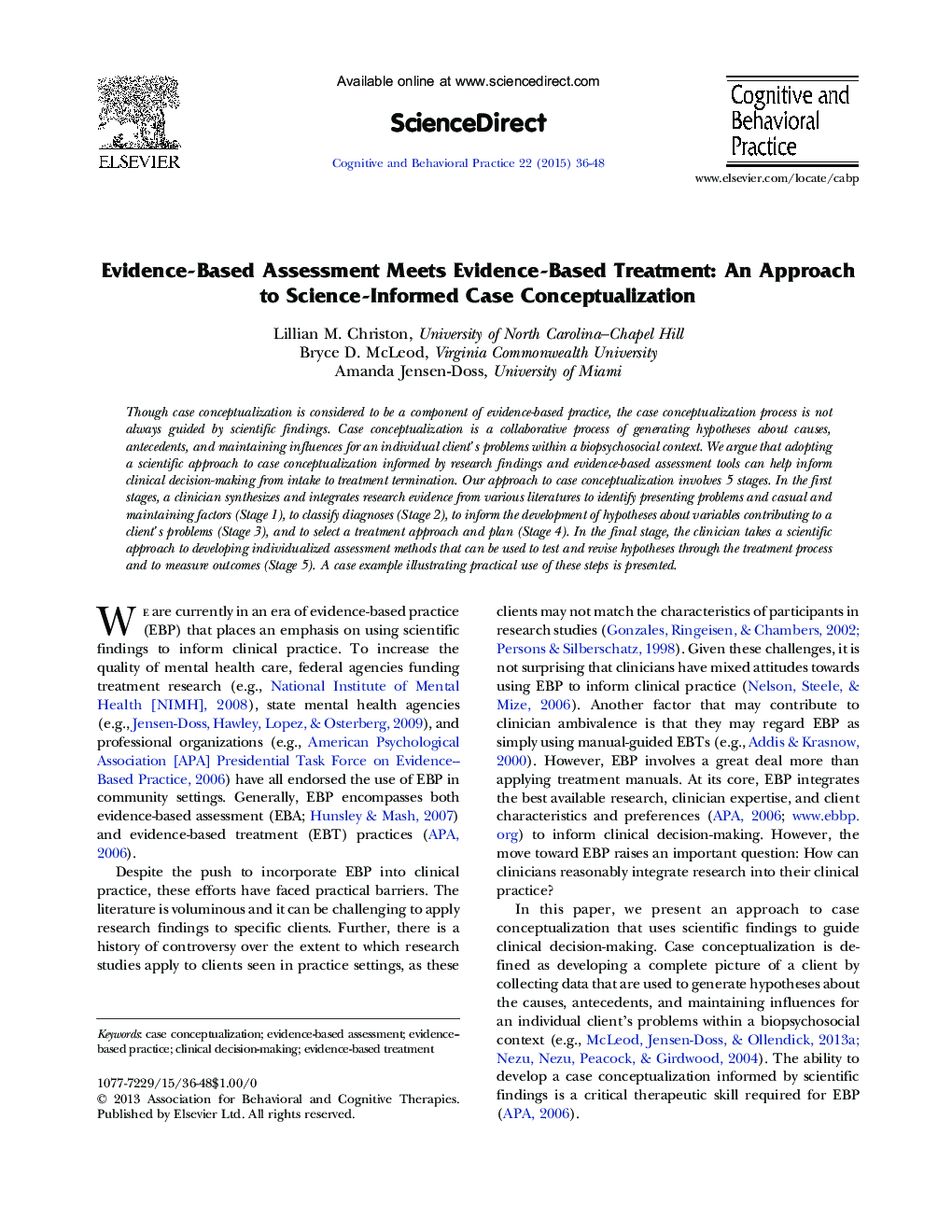| Article ID | Journal | Published Year | Pages | File Type |
|---|---|---|---|---|
| 904318 | Cognitive and Behavioral Practice | 2015 | 13 Pages |
•A science-informed case conceptualization approach can help inform clinical decision-making.•Integrating research findings and evidence-based assessment (EBA) tools can aid in this process.•We present a 5-stage approach to case conceptualization grounded in EBA strategies.•A case example illustrating practical use of these steps is presented.
Though case conceptualization is considered to be a component of evidence-based practice, the case conceptualization process is not always guided by scientific findings. Case conceptualization is a collaborative process of generating hypotheses about causes, antecedents, and maintaining influences for an individual client’s problems within a biopsychosocial context. We argue that adopting a scientific approach to case conceptualization informed by research findings and evidence-based assessment tools can help inform clinical decision-making from intake to treatment termination. Our approach to case conceptualization involves 5 stages. In the first stages, a clinician synthesizes and integrates research evidence from various literatures to identify presenting problems and casual and maintaining factors (Stage 1), to classify diagnoses (Stage 2), to inform the development of hypotheses about variables contributing to a client’s problems (Stage 3), and to select a treatment approach and plan (Stage 4). In the final stage, the clinician takes a scientific approach to developing individualized assessment methods that can be used to test and revise hypotheses through the treatment process and to measure outcomes (Stage 5). A case example illustrating practical use of these steps is presented.
